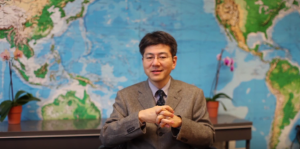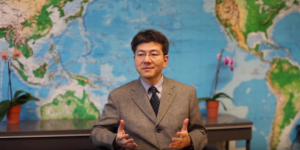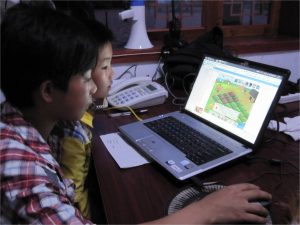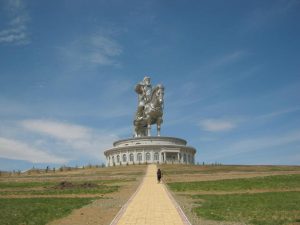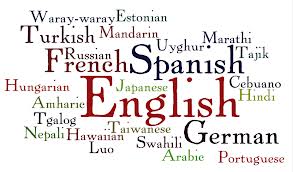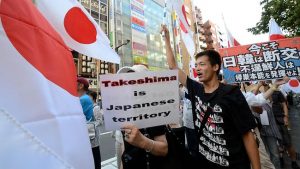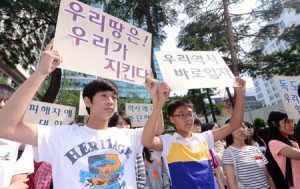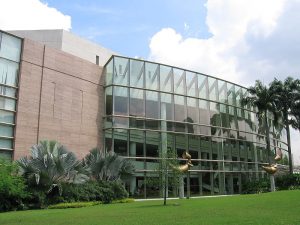Japan-China Relations: Issues and Prospects (Video Interview with Akio Takahara) – Part 2 of 2
Memo #254 Featuring Akio Takahara In part two of his interview with the Asia Pacific Memo (see part one here), Dr. Akio Takahara , a professor in the Graduate School of Law and Politics at the University of Tokyo and a recognized authority on contemporary Chinese politics and Japan-China relations, talks about bridging the divides in Japan-China […]
Japan-China Relations: Issues and Prospects (Video Interview with Akio Takahara) – Part 1 of 2
Memo #253 Featuring Akio Takahara Recently the Asia Pacific Memo sat down with Dr. Akio Takahara, Professor in the Graduate School of Law and Politics at the University of Tokyo and a recognized authority on contemporary Chinese politics, international relations in East Asia, and Japan-China relations in particular. In this first part of a two-part video memo, […]
China’s Environmental Education: A Mandate Unfulfilled
Memo #245 By Rob Efird – efirdr [at] seattleu.edu China’s environmental impacts are front-page news. We have all seen the pictures of smog-choked cities and fouled waterways, and many of us know that China is the single largest source of the carbon emissions that drive global warming. It is encouraging, then, that in 2003 China’s Ministry of Education […]
Tertiary Education in Mongolia: Tackling Mongolia’s Labor Deficit Problem
The Mongolian economy is booming and continues to enjoy an extremely high GDP growth rate. Economic opportunities for citizens in urban and rural settings abound. Mining is a major portion of the economy, with the massive Oyu Tolgoi mining project accounting for a third of Mongolia’s GDP. While World Bank development projects focus on infrastructure development, economic governance and institutional strengthening of the mining sector, the demand for a sufficiently educated Mongolian workforce remains unmet.
What is Language For? “Other” vs. “Heritage” Language Education in Australia
Australia is an ethno-linguistically diverse country with more than 15% of people speaking languages other than English, or a heritage language, at home. While learning English can contribute to immigrant students’ socioeconomic and educational success, heritage language maintenance facilitates maintaining ties with family and community members unable to speak English, avoiding a potential generation gap in immigrant families. Heritage language maintenance refers to a situation where immigrants continue using their languages in a host society. Additionally, maintaining a heritage language and ethnic identity are interconnected; individuals who lost their heritage languages reported feeling as though a part of their identities were missing. Finally, heritage language maintenance promotes multilingualism in society, which facilitates economic, cultural and political communications among countries.
Judo in Japanese Schools – Concerns about Safety
Memo #191 – Japan’s prime minister, Shinzo Abe oversaw the revision of the 1947 Fundamental Law of Education to emphasise traditional “Japanese values” in 2006. As one direct result of this, traditional martial arts became compulsory in junior high schools in April 2012. Unlike the initial opposition to the new law, opposition to this particular aspect has not been led by teachers’ unions and their political allies, but by parents concerned about the health and safety of their children.
Tokdo/Takeshima Island Dispute: A Call for Educators to Act towards Mutual Understanding
Memo #184 – The tiny island that lies between Japan and Korea – Takeshima (竹島) in Japan and Tokdo (독도) in Korea – is at the centre of a territorial dispute and serious bilateral tension. This is nothing new. The island, along with other remnants of Japan’s colonial aggression in Korea, has sparked diplomatic issues throughout postwar history. Despite unprecedented levels of cultural, academic, and economic exchange between the two nations, the dispute continues to be defined by a persistent legacy of colonialism and growing nationalism. Japanese and Korean political leaders demand that educators legitimate territorial claims by including these in their national curricula. But if educators comply uncritically, we will undermine future generations’ development of mutual understanding and respect.
竹島・獨島(ドクト)領土問題で教育の果たす役割とは:日韓相互理解へ向けて
Memo #184 (English translation available) – 日本と韓国の間に浮かぶ小島 ―日本側呼称は竹島、韓国側呼称は獨島(トクト)― を巡る領有権争いが、二国間に緊張関係をもたらしている。もちろん、この手の問題は何も目新しいことではなく、今件のような日本の過去の植民地政策の残滓は両国間の外交問題として戦後たびたび浮上してきた。今回の緊張関係に目新しい点があるとすれば、近年日韓の距離がとりわけ文化面において急速に縮まった中で、これが生じている点であろう。交流増加の一方で、依然として二国関係が過去の暴力の記憶と内向きなナショナリズムによって規定されていることを、今回の出来事は物語っている。領土問題が外交問題化するや否や、両国の政治家たちは挙って自己の領有権を正当化することを教育現場に指示した。だが教師たちがこの方針に無批判に従うならば、二国間の相互理解と尊重を将来の世代に育むという理想は更に遠のいてしまう。
독도/다케시마 영토 분쟁을 교육적 계기로 활용하자
Memo #184 (English translation available) – 최근 한일 양국 사이에 위치한 작은 섬 – 한국명 독도, 일본명 다케시마-을 둘러싸고 외교적 긴장 관계가 조성되고 있다. 물론 이와 같은 긴장관계가 조성된 것이 이번이 처음은 아니다. 일제의 한반도 강점은 독도 문제를 포함한 많은 식민주의의 상흔들을 한국에 남겼는데, 이런 상흔들은 전후 동아시아에서 발생한 여러 차례의 외교적 갈등의 도화선으로 작용하곤 했다. 최근 양국 사이에는 일찍이 두 나라가 경험해 보지 못한 수준의 경제적, 문화적 교류가 활발하게 진행되고 있었다. 하지만, 독도를 둘러싸고 벌어진 양국의 배타적인 민족주의의 발흥은 그 동안 이룩한 협력의 성과를 무색하게 하고 있다. 이런 상황 속에서 양국의 위정자들은 교육자들에게 독도에 대한 각국의 영유권 주장을 정당화하는 민족주의적 국가교육과정을 학생들에게 가르치도록 요구하고 있다. 만약 교육자들이 맹목적으로 이 요구를 수용한다면, 우리는 양국에 대한 상호 이해와 존중이라는 교육적으로 유의미한 가치를 다음 세대들에게 교육할 매우 귀중한 기회를 잃게 될 것이다.
The Role of the University in Singapore (Video Interview with Dr. Philip Holden)
Memo #179 – The role of the university in Asia has changed over time. Many Asian universities were colonial institutions, and then incubators for nationalist thought. In contemporary Asia, they have key economic functions, attracting foreign students and research capital, often in state capitalist societies.
